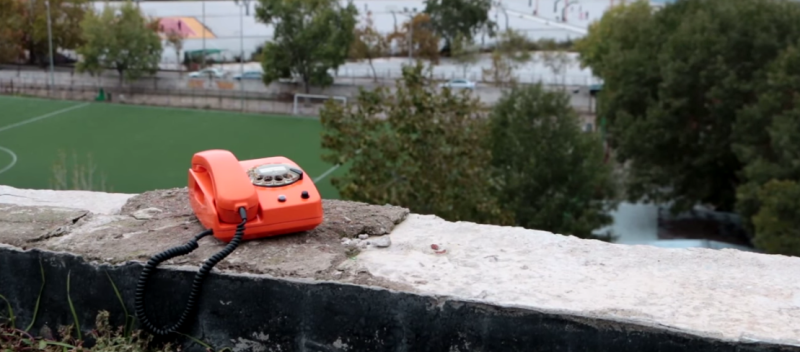As a society we are moving away from land line phones while mobile devices are becoming more and more prevalent. It is not uncommon for people to only have a cell phone and completely skip out on the corded home phone. While this move may be for convenience, there is one difference between the two phone types that didn’t ring well with [Stavros]. He’s an angry phone talker and misses the ability to slam down a phone handset. Now [Stavros] could just have a corded home phone but he wanted a mobile option for handset slams so he came up with a project called iRotary. It’s an old school rotary phone converted to be battery powered and uses cell phone networks for making calls.
At the heart of the project is an Arduino. The Arduino is a great choice as it can easily decode the phone’s rotary dial pulses. The Arduino code takes all of the individual dialed numbers and combines them into a phone number. The sketch is set up so that after the 10th digit is read, the phone call is placed using an off the shelf GSM shield and associated library.
Since a battery would be necessary to make this phone mobile, one was installed inside the case along with a charging circuit. [Stavros] hasn’t done any long-term endurance studies but he has had the phone on for several hours at a time without any problems. So, now he can rest easy knowing that an angry hang-ups are never out of his reach, regardless of where he may be. And since he’s a nice guy, he’s made the source code available for anyone wanting to make something similar.
















Lovely Hack! Always thought those europhones were so much cooler looking than their US cousins and it is nice to see someone giving one a new lease on life.
This model looks like the wall mounted version that was common in the US when I was a kid, rather than the desk version that we still use to receive calls.
The DOS Emergency phonne…now mobile.
I did something similar last year: http://jegger.ch/blog/?p=11
Would have been good to leave a little phone wire attached and wired up the battery to wire inside phone to charge the phone for “free”
I agree with his motivations. One day, no one will remember the solid feel of a handset ergonomically designed for the single purpose of making a telephone call. Smart phones are wonderful, but by aiming to be our everything (phone, computer, wallet, camera), they can only provide mediocre manifestations of those things.
there is one difference between the two phone types
I get that this was meant to be funny, but I do think there is an important distinction between mobile and land line that will extend the lifetime of the wired phone. Land lines are still desireable whenever you care about calling a place, and not a particular person. We’ll continue to see them in use in business for some time to come (heck we can’t even seem to kill fax off). I like being able to ring up my (rather small) local hackerspace to see if anything interesting is happening.
Where I work, all the “landline” phones are actually IP phones.
And when the network goes down, so does your phone system; that’s why I keep an old wired phone around.
That would work, if the telephone companies were not switching their networks over to VOIP. The only part of the local phone system, I’ve been told by the phone company, that is still POTS is the “last mile”. The switch box in the ground doesn’t even have the old stack of lead-acid batteries anymore, since it is only needed for the last mile they have cut down on the number of hours that it is expected to run without external power.
The phones have their own network. Keep in mind that the analog phones they used before they went VoIP rely on a PBX and would be just as failure prone if not more so. It’s also a big site so they’ll definitely have plenty of spare hardware in stock.
https://www.sparkfun.com/products/retired/286
Got one back in the day, not sure if it will work on todays networks.. Have to dust it off. :)
I sincerely hope he built some kind of a contacts list into it. 99% of the time I use my mobile I’m calling somebody with a few taps, from the address book (software!). Although I wonder about the true practicality of this little curiosity.
I guess he can have 10 quick-call contacts, with number 0 being the slowest to access!
This is cool but I want a phone that understands not only my voice but old telephone names, I say pick up the receiver, say “Hello central, get me FEllatio 3-3333” and it dials 333-3333, now that would be retro.
this one is so old, the batteries on mine have had time to die…